11 Self-help Books for Millennials to Get The Best Of Life.
I Picked This 11 Self-Help Books Specially For Millennial Reader. I Believe These Personal Development Books Will Help Millennials to Understand The Real-Life.
Written By EHBL Team
7 min read


Reading has always been more than a hobby for me—it’s a lens through which I’ve tried to understand life, human behaviour, and the world around us. I believe millennials, shaped by technology and modern anxieties, often seek clarity about themselves and the rapidly changing world they inhabit. This curated list reflects my journey, aiming to guide young adults through the origins of life, the mysteries of the universe, and the challenges of the modern world.
1. Sapiens: A Brief History of Humankind
by Yuval Noah Harari
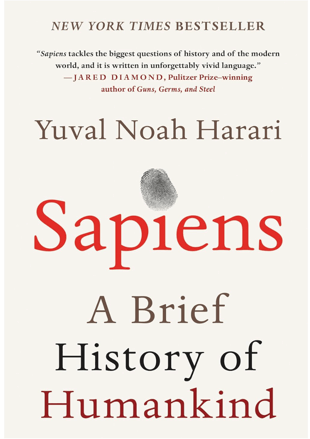

This book redefined how I see humanity. It felt like stepping out of my timeline and viewing the human race from above. Harari explains not just our origins but why we think and behave the way we do today.
Point to be Noted:
• The “Cognitive Revolution” gave humans the power to create shared myths (like money, religion, and nations) that bind societies together.
• Agriculture was a turning point but also the “biggest fraud” in history—it gave stability but reduced quality of life.
• Human evolution is driven by storytelling; we thrive on shared beliefs, not individual truths.
• Empathy and cruelty often walk hand in hand—humans dominate but at an enormous cost to other species.
• The pursuit of happiness remains elusive; we evolved for survival, not contentment.
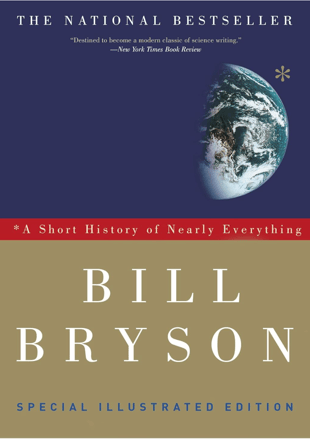

2. A Short History of Nearly Everything
by Bill Bryson
Reading this was like having a chat with a funny, super-smart friend. Bryson simplifies the mind-bending history of the universe and our place in it. I often found myself laughing in awe at the absurdities of existence.
Point to be Noted:
• The fact that you exist is a miracle, considering the infinite chances for the universe to fail at every step.
• Humans are made of stardust—the elements in your body were forged in the core of dying stars.
• The Earth is resilient and fragile; small changes can disrupt billions of years of balance.
• The most extraordinary discoveries often came from ordinary people with an insatiable curiosity.
• Ignorance is vast—there’s so much we don’t know about the oceans, lifeforms, and even the human brain.
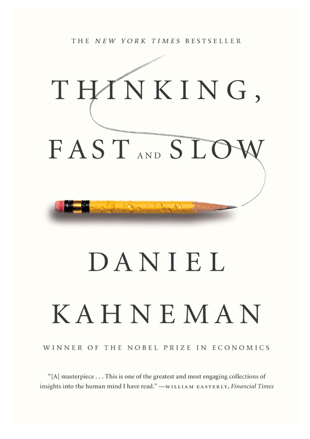

3. Thinking, Fast and Slow
by Daniel Kahneman
This book transformed the way I understand decision-making. Kahneman dives into the quirks of the human mind, revealing how we’re not as rational as we think. It made me question my choices, instincts, and memories.
Point to be Noted:
• Your brain operates in two modes: fast, instinctive (System 1) and slow, deliberate (System 2).
• We are more biased than we believe—confirmation bias and loss aversion dictate many decisions.
• “What you see is all there is” (WYSIATI): our brains jump to conclusions based on incomplete information.
• Happiness is influenced more by the memories we form than the moments we experience.
• Awareness of your mental biases is the first step toward better decision-making.
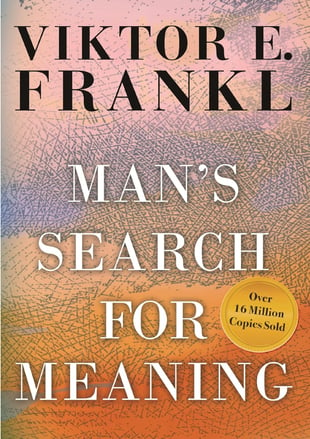

4. Man’s Search for Meaning
by Viktor E. Frankl
I read this in one sitting, stunned by its profound simplicity. Written by a Holocaust survivor, this book is not about suffering but finding meaning, no matter how dire the circumstances.
Point to be Noted:
• Life is never made unbearable by circumstances but by lack of meaning and purpose.
• Human freedom lies in choosing one’s attitude, even in extreme suffering.
• Success and happiness are by-products of pursuing something greater than yourself.
• Meaning differs for everyone, but it often involves responsibility and relationships.
• “He who has a why to live can bear almost any how.”
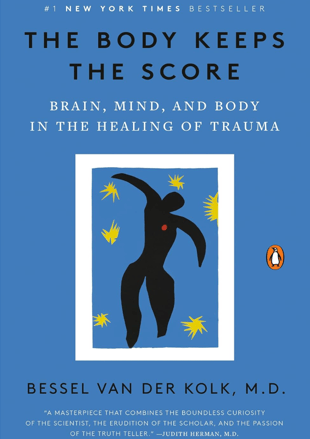

5. The Body Keeps the Score
by Bessel van der Kolk
This book was a revelation about how the body stores trauma. It taught me that emotional pain doesn’t just exist in the mind—it lives in the body, shaping our health, behaviour, and relationships.
Point to be Noted:
• Trauma changes how your brain perceives the world—it keeps you constantly alert.
• Healing isn’t just about talking; practices like yoga, art, and EMDR can unlock suppressed pain.
• Unprocessed trauma can manifest as physical illness or self-destructive behaviour.
• Safe, supportive relationships are essential for recovery.
• Understanding the body’s role in trauma allows for deeper healing and compassion.
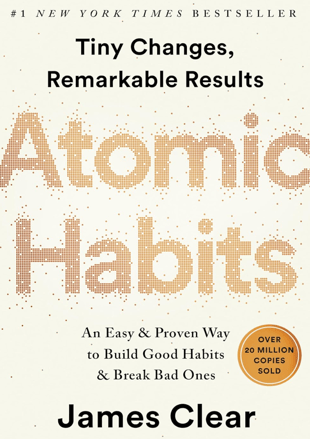

6. Atomic Habits
by James Clear
This is more than a productivity book—it’s a guide to mastering the art of small changes. I learned that transformation isn’t about willpower but about creating an environment supporting growth.
Point to be Noted:
• Focus on identity-based habits: don’t aim to “run”; aim to “be a runner.”
• 1% improvements compound over time—tiny gains lead to massive change.
• Systems matter more than goals; focus on the process, not just the outcome.
• Habits are context-dependent; tweak your environment to encourage good ones.
• Success is the product of consistency, not motivation.
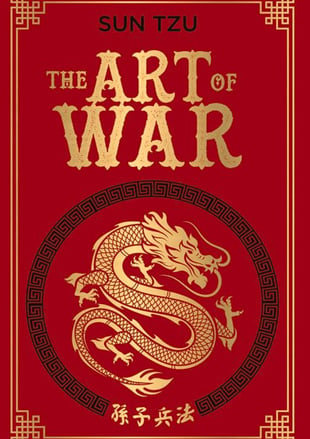

7. The Art of War
by Sun Tzu
This ancient text isn’t just about warfare—it’s a strategy, discipline, and self-awareness manual. It taught me that battles are fought and won long before the actual fight begins.
Point to be Noted:
• Victory comes from preparation, not brute force.
• Know yourself and your enemy, and you’ll rarely lose.
• Flexibility is key; rigidity breaks under pressure.
• Timing matters—sometimes, the best strategy is to wait.
• Conflict often stems from ego—true strength lies in restraint.
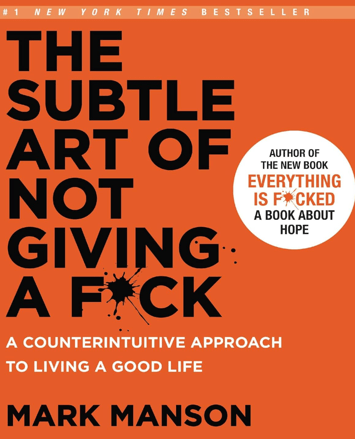

8. The Subtle Art of Not Giving a F*ck
by Mark Manson
This isn’t your typical self-help book—it’s a wake-up call. Manson’s humour and brutal honesty made me question my priorities and realize that caring less can lead to more happiness.
Point to be Noted:
• You can’t care about everything—choose your values wisely.
• Struggles give life meaning; chasing happiness often leads to emptiness.
• Failure is inevitable; embrace it as a learning process.
• Responsibility equals power—owning your problems gives you control.
• Life is finite; stop wasting it on things that don’t matter.
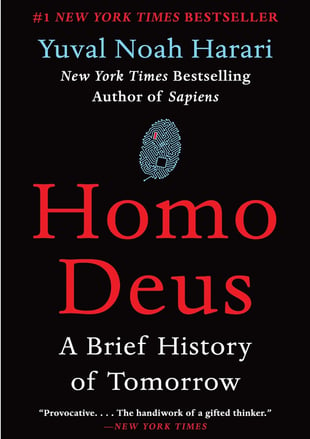

9. Homo Deus: A Brief History of Tomorrow
by Yuval Noah Harari
Harari’s vision of the future left me both awestruck and uneasy. This book explores how technology will redefine what it means to be human.
Point to be Noted:
• Data is the new religion; those who control it will control society.
• Humans may lose relevance as artificial intelligence outpaces us.
• Biotechnology will redefine life, possibly creating a new species.
• Ethical dilemmas will intensify as power shifts from humans to algorithms.
• To stay relevant, we must focus on emotional intelligence and adaptability.
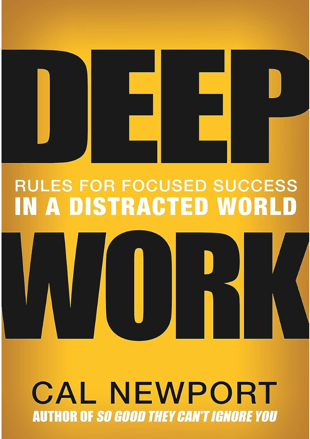

10. Deep Work
by Cal Newport
This book helped me understand the value of focus in a distracted world. I realized that depth, not speed, set extraordinary work apart.
Point to be Noted:
• Deep work creates value; shallow tasks only consume time.
• Train your brain to focus by removing distractions.
• Success requires saying “no” to meaningless commitments.
• The ability to focus is a superpower in the modern world.
• Rest is as important as work; creativity flourishes during downtime.
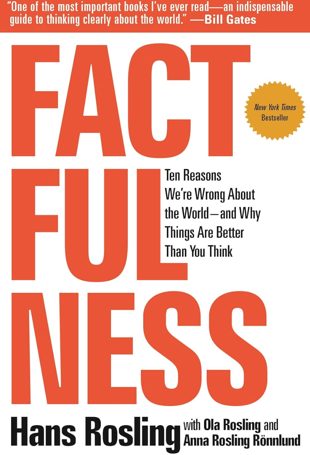

11. Factfulness
by Hans Rosling
This book changed the way I see the world. Despite the negative headlines, Rosling argues that humanity is improving in many ways, and understanding this gives hope.
Point to be Noted:
• The world is better than you think; extreme poverty has declined drastically.
• Beware of the “gap instinct”—life isn’t divided into extremes.
• Data beats emotion when understanding global issues.
• Fear often distorts reality; most things are not as bad as they seem.
• A fact-based worldview leads to better decisions and a calmer mind.
These books aren’t just reads—they’re experiences that shaped my understanding of life. I hope they help you find clarity, purpose, and joy in your journey. Which one will you start with?
I published an essay a long time ago on the finest love quotes from Rumi and how they may help us redefine love in our contemporary lives via many stages of love, such as loving oneself, discovering love, and showing love to someone. It could be interesting to you.
22 Rumi quotes: How Rumi teaches us the 4 stage of love with love quotes.
You may also see my list of the best fiction books I think millennials should read to learn about life. 11 fiction book for millennials to understand life better.
If you are curious about what makes successful people so successful and how we can be one of them, you can read this article where I talk about a secret habit of successful people.Click here
Want to know more about me? How do I hack the hurdle and try to live a meaningful life? I am welcoming you to my Journal of Thought. Please click here to visit the page.
And thank you for all the support and love.
